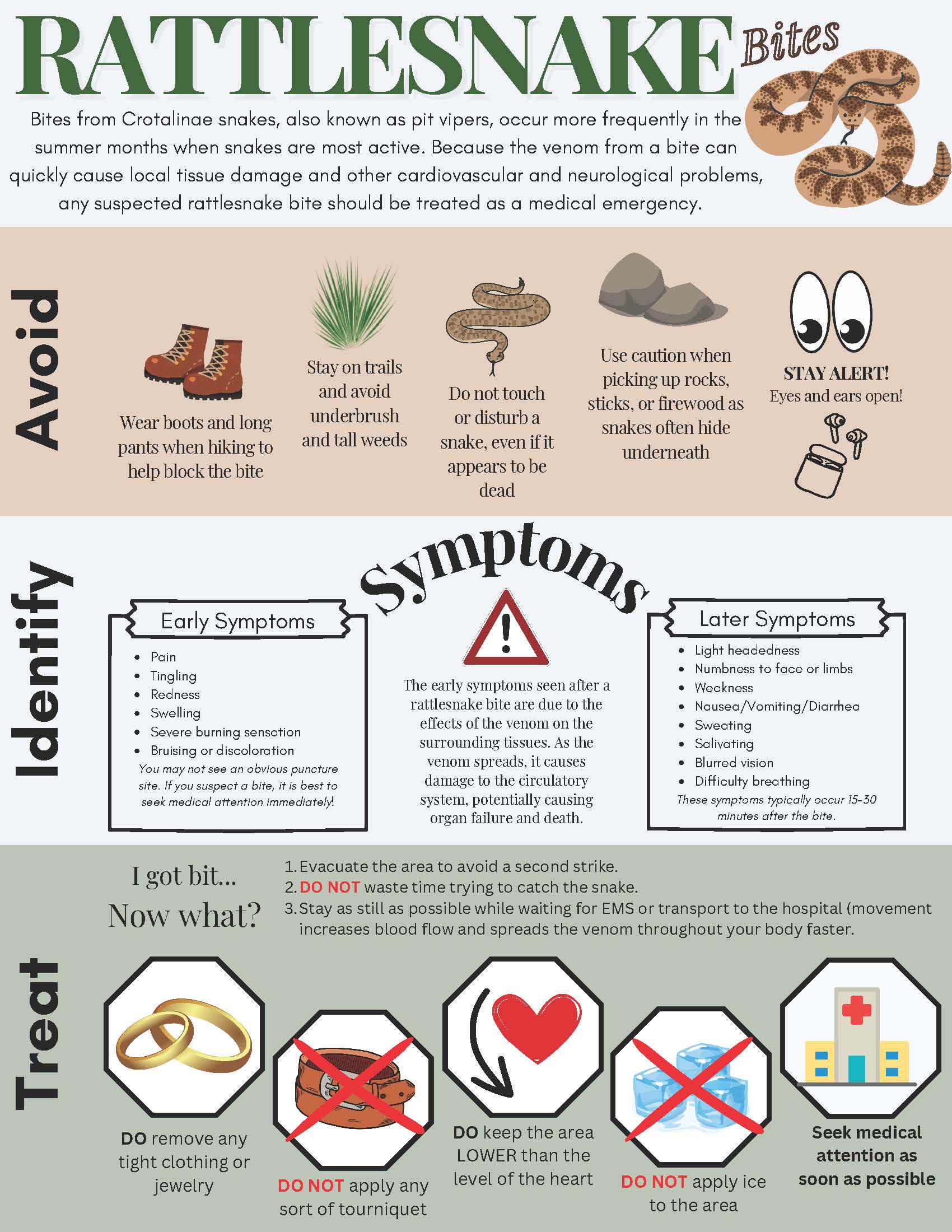🪱 Bitten by Nature: How to Stay Safe from Rattlesnake Bites This Season
As the temperatures rise, so does the activity of one of nature’s most infamous reptiles—the rattlesnake. These pit vipers are most active in the warmer months, and while they typically prefer to avoid humans, accidental encounters can happen—especially if you're hiking, camping, or spending time outdoors.
Rattlesnake bites aren’t just painful—they can be life-threatening. Their venom spreads fast, damaging tissue and potentially leading to organ failure if not treated promptly. But the good news? With a little knowledge and preparedness, you can greatly reduce your risk and respond smartly if the worst happens.
🧠 Know the Symptoms
Early symptoms (usually 15–30 minutes after the bite) can include:
Lightheadedness
Numbness in the face or limbs
Weakness
Nausea, vomiting, or diarrhea
Excessive sweating or salivating
Blurred vision
Difficulty breathing
As the venom spreads, later symptoms may include:
Severe pain and burning at the bite site
Redness, swelling, and bruising
Tingling or a metallic taste in the mouth
Even if you can’t see a clear puncture wound, assume the worst and seek medical attention immediately if you suspect a bite.
🆘 What To Do If You’re Bitten
Stay calm and as still as possible. Movement spreads venom faster.
Keep the bitten area lower than your heart.
Remove tight clothing or jewelry near the bite site to allow for swelling.
Evacuate the area—snakes can strike again.
Call for emergency help or get to a hospital ASAP.
🚫 What Not to Do
❌ Don’t apply ice
❌ Don’t use a tourniquet
❌ Don’t try to suck out the venom
❌ Don’t handle or try to capture the snake—dead or alive
These outdated methods can do more harm than good.
🥾 Prevention is Your Best Defense
Whether you're on the trail or around your property, a few precautions can go a long way:
Wear boots and long pants when hiking in snake territory
Stick to well-used trails and avoid underbrush or tall weeds
Use caution when lifting rocks, logs, or firewood
Stay alert—look and listen before stepping or reaching into unseen areas
Final Thought
Rattlesnakes play an important role in the ecosystem, but it’s up to us to respect their space and stay aware. A bite is always a medical emergency, but with the right preparation and quick action, it doesn't have to be a fatal one.
Stay safe out there—and keep your eyes (and ears) open! 🐍